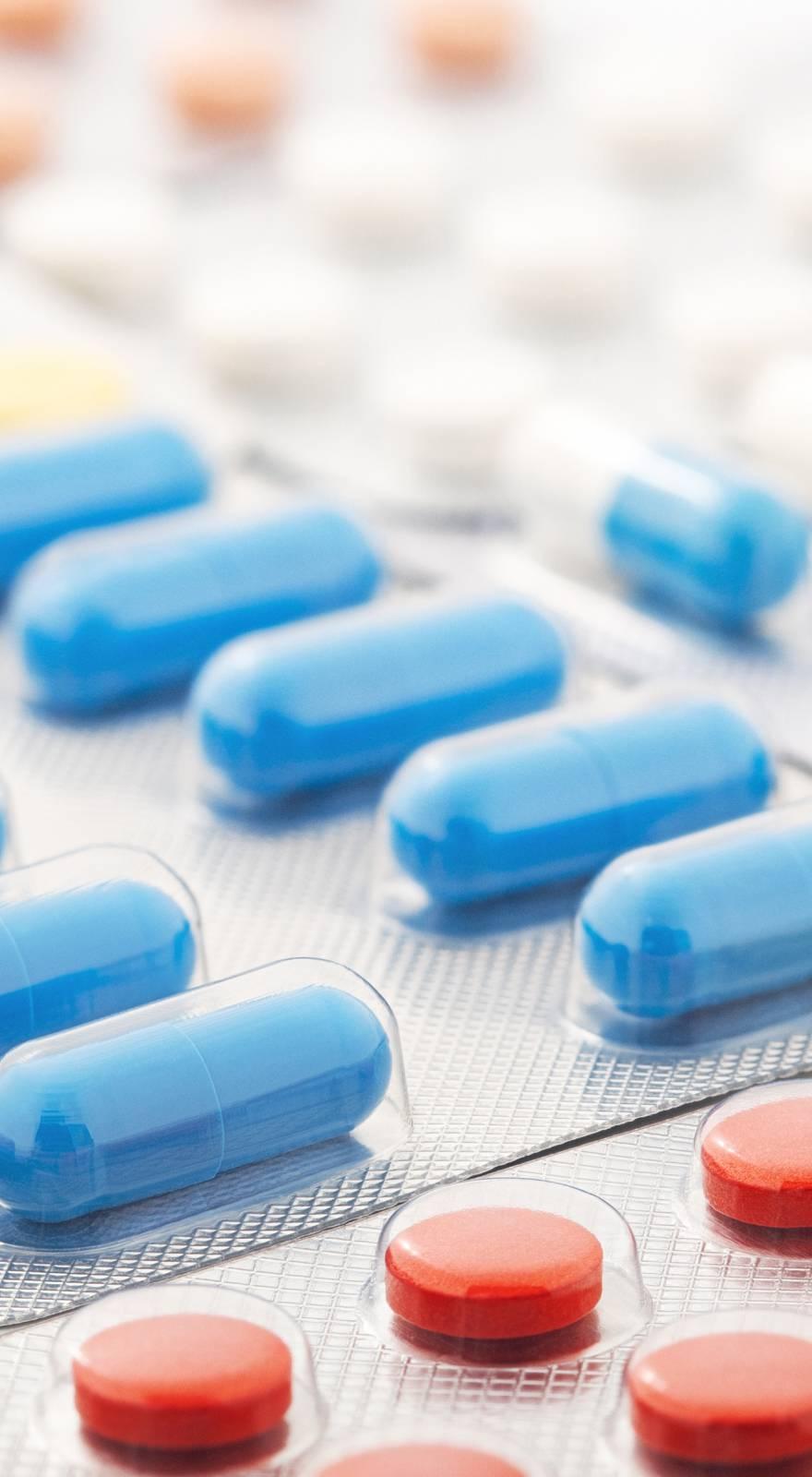Knowde Enhanced TDS
Identification & Functionality
- Pharma & Nutraceuticals Functions
- Technologies
- Typical Constituents
HPMC; PEG 6000; Glycerine; PVA; Glidant.
Features & Benefits
- Features
-
Dry powder system for reconstitution.
-
Complete coating formulation minus solvent.
-
Compatible with aqueous, organic and hydro alcoholic solvent systems.
-
Imparts high gloss to solid dosage forms.
-
Acts as a sealant for uncoated tablets.
-
Can be applied in a wide range of equipment designs and sizes from most manufacturers.
-
- Benefits
-
Process time savings from rapid coating suspension manufacture.
-
Cost savings in inventory and inventory management.
-
Process and equipment flexibility.
-
Enhances product appearance.
-
Improves bulk tablet flow rates and productivity particularly in blister packing lines.
-
Reduces dust generation during bulk tablet handling.
-
Promotes a cleaner safer environment, with easy clean-down and product changeover.
-
Easy scale-up and transfer to different equipment types or manufacturing sites.
-
Applications & Uses
- Markets
- Applications
- Manufacturing Technology
- Equipment / Accessories
-
Variable-speed mechanical stirrer
-
Mixing Vessel
-
Properties
Regulatory & Compliance
- Regulatory Information
All products are checked for the regulatory compliance of all ingredients in the target countries and market segments of sale. This determination is made at the time the initial formulation is established, based on customer-supplied information. If market countries and/or segments are extended once the formulation has been established, customers are encouraged to contact us to ensure that regulatory compliance is not compromised.
Technical Details & Test Data
- Recommended Solvent System and Reconstitution Level
-
Purified water at up to 7% w/w solids
-
Organic: IPA 35% + MDC 65% w/w at up to 5% solids
-
Hydro-alcoholic: Water 15% + IPA 85% w/w at up to 5% solids
-
- Calculation of Instaglow and Solvent Quantities
-
Determine the quantities of Instaglow (7% w/w solids) and water required based on the quantity of tablets to be coated and the target coating weight gain. e.g.: For coating 1.0 kg of tablets to 0.2% wt. gain, weigh 2.2 g Instaglow and 29.2 gm purified water at room temperature (includes 10% overage for losses)
-
Determine the quantities of Instaglow (5% w/w solids) and IPA 35% + MDC 65% required based on the quantity of tablets to be coated and the target coating weight gain. e.g.: For coating 1.0 kg of tablets to 0.2% wt. gain, weigh 2.2 g Instaglow and 41.8 gm IPA 35%+ MDC 65% at room temperature (includes 10% overage for losses)
-
Determine the quantities of Instaglow (5% w/w solids) and Water 15% + IPA 85% required based on the quantity of tablets to be coated and the target coating weight gain. e.g.: For coating 1.0 kg of tablets to 0.2% wt. gain, weigh 2.2 g Instaglow and 41.8 gm Water 15% + IPA 85% at room temperature (includes 10% overage for losses)
-
- Reconstitution Process
-
Instaglow (Aqueous)
-
Add the weighed quantity of water to a mixing vessel.
-
Using a mechanical stirrer, stir the purified water to form a vortex.
-
Add required quantity of Instaglow to the center of the liquid vortex in a slow steady stream, avoiding clumping while maintaining a vortex. Once the entire quantity of Instaglow has been added, reduce the stirrer speed to eliminate the vortex. (Fig. 2) Continue mixing for 45 minutes.
-
-
Instaglow (Organic)
-
Add the weighed quantity of organic solvent to a mixing vessel.
-
Using a mechanical stirrer, stir the organic solvent to form a vortex.
-
Add required quantity of Instaglow to the center of the liquid vortex in a slow steady stream, avoiding clumping while maintaining a vortex. Once the entire quantity of Instaglow has been added, reduce the stirrer speed to eliminate the vortex. (Fig. 3) Continue mixing for 45 minutes.
-
-
Instaglow (hydro alcoholic)
-
Add the weighed quantity of hydro alcoholic solvent to a mixing vessel.
-
Using a mechanical stirrer, stir the hydro alcoholic solvent to form a vortex.
-
Add required quantity of Instaglow to the center of the liquid vortex in a slow steady stream, avoiding clumping while maintaining a vortex. Once the entire quantity of Instaglow has been added, reduce the stirrer speed to eliminate the vortex. (Fig. 4) Continue mixing for 45 minutes.
-
-
- Recommended Process Conditions
Side-Vented
(Fully Perforated) PansConventional
(Non Perforated) PansPan Diameter (inch) 24-60 12-36 Tablet Load (kg) 10-300 0.5-50 Weight Gain (%) 2.0-3.0% Number of Guns 1-6 1 Liquid Nozzle diameter (mm) 1.0-1.2 Atomising Air Pressure (bar) 2.5-3.5 Pattern Air Pressure To achieve maximum uniform bed coverage Tablet Bed Temperature, Aqueous (°C) 40-45 Tablet Bed Temperature, Organic (°C) 34-38 Tablet Bed Temperature, Hydro- Alcoholic (°C) 36-40 Inlet Air Temperature (°C) Set to achieve required product bed temperature Suspension Spray Rate Set to achieve required product bed temperature Exhaust Air Volume To maintain slight negative pressure in pan Pan Speed Minimum for steady tablet flow through spray zone Tablet bed temperature offers the most effective way of controlling the coating process. Where this measurement is unavailable, exhaust temperature may be substituted. However, the relationship between the two measurements is complex and depends on several factors such as pan load, pan depression, pan design and airflow rate. Indicated exhaust temperature may be above or below the true bed temperature. It is recommended that the relationship between the two measurements is calibrated.

